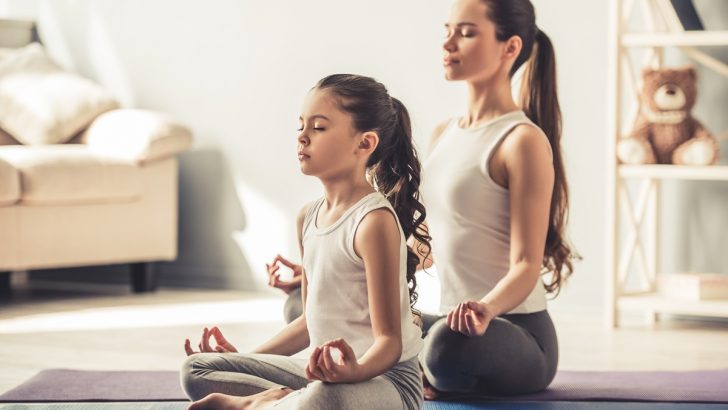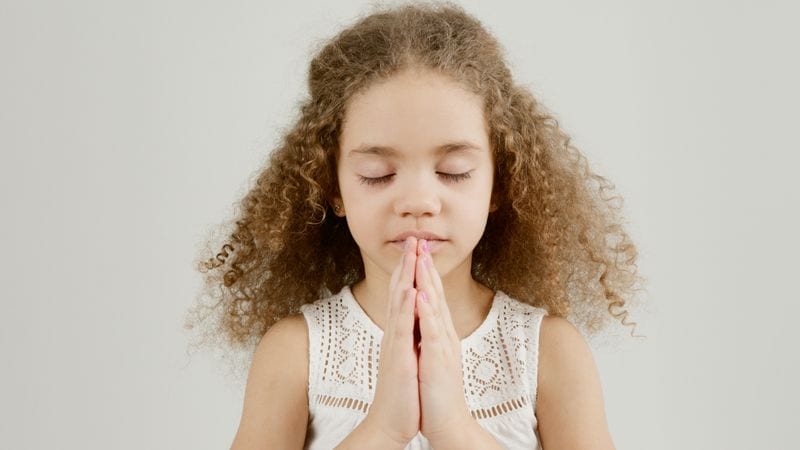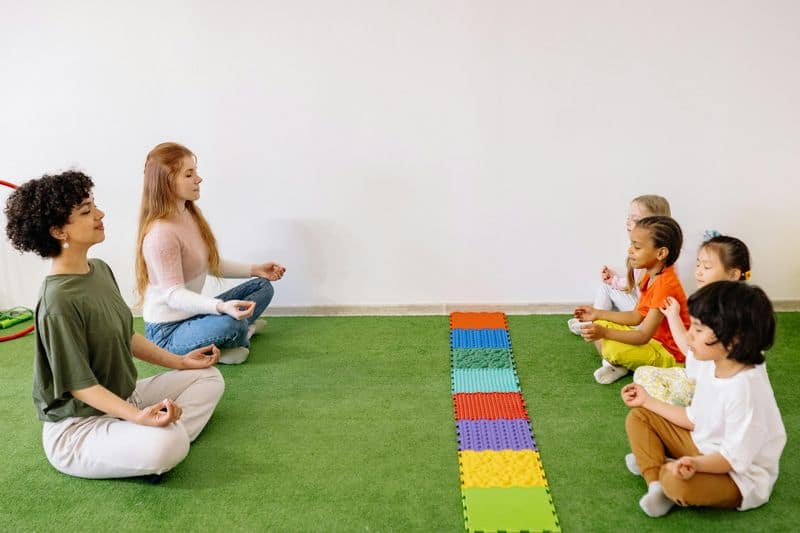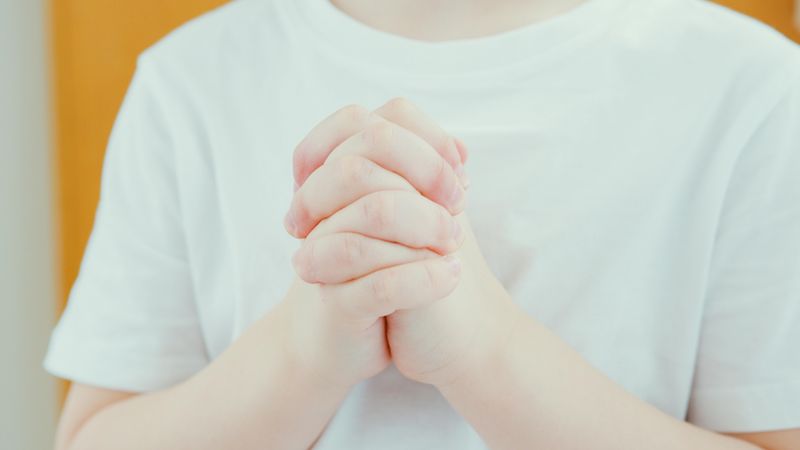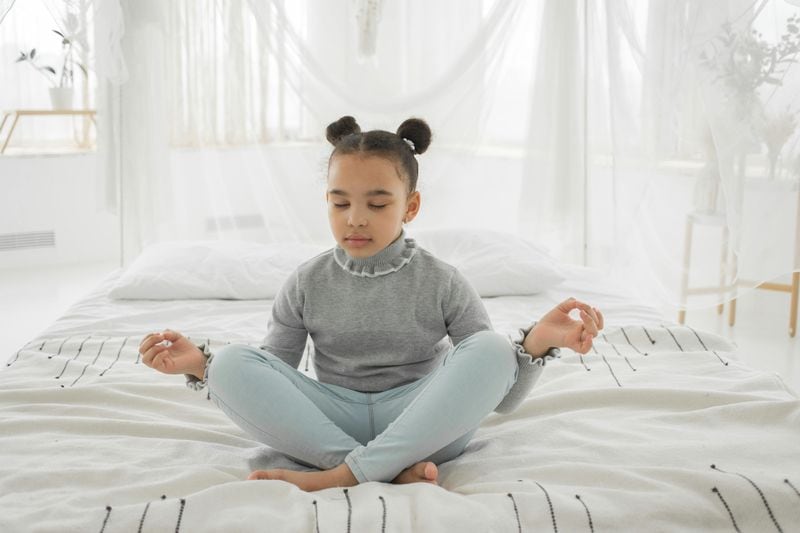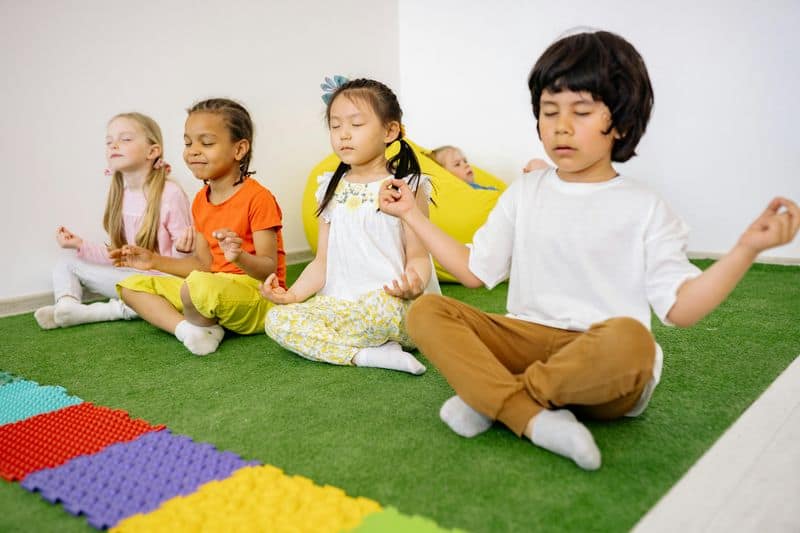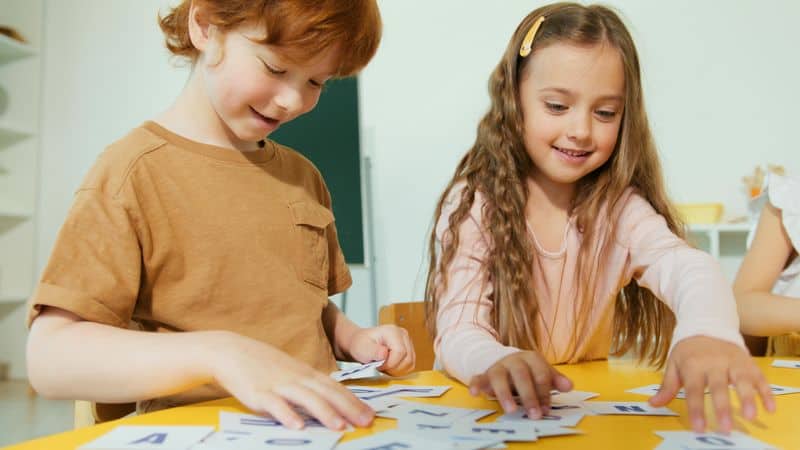Mindfulness isn’t just for adults anymore. Teaching children to be present, aware, and emotionally balanced has become an essential part of modern parenting.
When kids learn mindfulness early, they develop powerful mental tools they’ll use throughout their lives.
The benefits reach far beyond just staying calm – they extend into every aspect of a child’s development.
1. Emotional Intelligence Superpower
Children who practice mindfulness develop an incredible ability to recognize and name their feelings. Instead of being overwhelmed by big emotions, they learn to observe them with curiosity.
This emotional awareness creates space between feeling and reaction, giving kids time to choose better responses. When your child can say “I feel angry” instead of just acting angry, they’ve gained valuable emotional intelligence.
Over time, this skill builds stronger relationships and fewer meltdowns. Your child becomes equipped to navigate their emotional landscape with confidence rather than being tossed around by every feeling that arises.
2. Focus in a Distracted World
Attention spans are shrinking in our digital age, yet success in school and life depends on focused concentration. Mindfulness practices train the brain to notice when attention wanders and gently bring it back.
Young practitioners develop the mental muscle to stay engaged with homework, conversations, and creative play for longer periods. Teachers often report that mindful students participate more fully in classroom activities and absorb information more effectively.
This enhanced focus doesn’t just improve grades – it deepens a child’s experience of everything they do, from reading a book to playing with friends or appreciating nature.
3. Natural Stress Busters
Children face more pressure than ever before – from academic expectations to social media comparisons. Mindfulness equips kids with built-in stress management techniques they can use anywhere.
Simple breathing exercises become powerful tools when anxiety strikes before a test or during challenging social situations. The body awareness that mindfulness develops helps children recognize stress signals like a racing heart or tight shoulders.
Many parents report that bedtime battles decrease as children learn to release the day’s tensions through mindful moments. These stress-busting skills become especially valuable during major life transitions like changing schools or family changes.
4. Kindness and Compassion Growth
Mindfulness naturally cultivates empathy by teaching children to tune into their own feelings first. This self-awareness creates a foundation for understanding others’ emotions and perspectives.
Loving-kindness meditation, a popular mindfulness practice, specifically develops compassion through sending good wishes to oneself and others. Children who practice mindfulness often show more inclusive behavior on playgrounds and greater sensitivity to classmates’ feelings.
Research shows these compassionate behaviors aren’t just momentary – they become part of a child’s character. Parents frequently notice mindful kids standing up for others, sharing more willingly, and showing genuine concern when someone is hurt.
5. Better Sleep Habits
Bedtime battles frustrate many families, but mindfulness offers a peaceful solution. Body scan meditations and breathing exercises calm racing minds and prepare children’s bodies for restful sleep.
Kids who practice evening mindfulness typically fall asleep faster and experience fewer nighttime wakings. The quieting effect on the nervous system helps them transition from busy days to peaceful nights without the stimulation of screens.
Quality sleep profoundly impacts everything from mood to immune function to academic performance. Many parents establish mindful bedtime routines after noticing how their children wake more refreshed and ready to embrace the day after mindful sleep practices.
6. Resilience Through Challenges
Life throws curveballs, and mindfulness helps kids bounce back stronger. When children learn to observe difficult situations without being completely overwhelmed by them, they develop remarkable resilience.
Mindfulness teaches that feelings and thoughts are temporary visitors rather than permanent parts of identity. A child who can say “I’m having worried thoughts” instead of “I’m a worrier” maintains their sense of capability even during struggles.
This mental flexibility becomes especially valuable during disappointments like losing games, friendship conflicts, or academic setbacks. Mindful kids tend to try again after failures rather than giving up, maintaining a growth mindset through life’s inevitable challenges.
7. Self-Awareness Foundation
Mindfulness creates a fascinating journey of self-discovery for children. Regular practice helps kids notice their thoughts, physical sensations, and emotional patterns without judgment.
This growing self-awareness helps children recognize their unique strengths, preferences, and challenges. Many parents observe their mindful children making more authentic choices rather than simply following peers.
As kids develop this inner compass, they become less susceptible to negative peer pressure during adolescence. The confidence that comes from truly knowing oneself becomes a protective factor throughout childhood and beyond, helping kids make choices aligned with their values rather than external pressures.
8. Academic Performance Boost
Schools implementing mindfulness programs report impressive academic improvements. Brief mindfulness practices before tests help students access knowledge they’ve studied rather than freezing under pressure.
The enhanced focus that comes from regular mindfulness practice translates directly to better listening skills and homework completion. Studies show particularly strong improvements in math performance, possibly because mindfulness reduces anxiety that often blocks mathematical thinking.
Beyond test scores, mindful students typically show more creativity and critical thinking. The present-moment awareness cultivated through mindfulness helps children fully engage with learning materials rather than rushing through assignments just to finish.
9. Friendship and Communication Skills
Mindful children often become exceptional friends and communicators. The practice of present-moment awareness naturally enhances listening skills as kids learn to give their full attention to conversations rather than planning what to say next.
Conflict resolution becomes easier when children can pause before reacting. Many teachers notice that mindful students express their needs clearly and resolve playground disagreements more independently.
The non-judgmental attitude cultivated in mindfulness practice also helps children accept differences in others, leading to more inclusive social groups. Parents frequently report that mindful kids maintain friendships through challenges rather than giving up when conflicts inevitably arise.
10. Lifelong Happiness Habits
Perhaps the greatest gift of early mindfulness training is establishing happiness habits that serve children throughout life. Young practitioners learn that joy comes from appreciating the present moment rather than always chasing the next achievement or possession.
Gratitude practices, often incorporated into children’s mindfulness, create lasting positive outlook changes. Research shows that people who maintain mindfulness practices report higher life satisfaction and lower rates of depression across their lifespan.
By teaching mindfulness early, you’re giving your child internal tools for happiness that don’t depend on external circumstances. This foundation of emotional well-being becomes increasingly valuable as children navigate the complexities of growing up.

